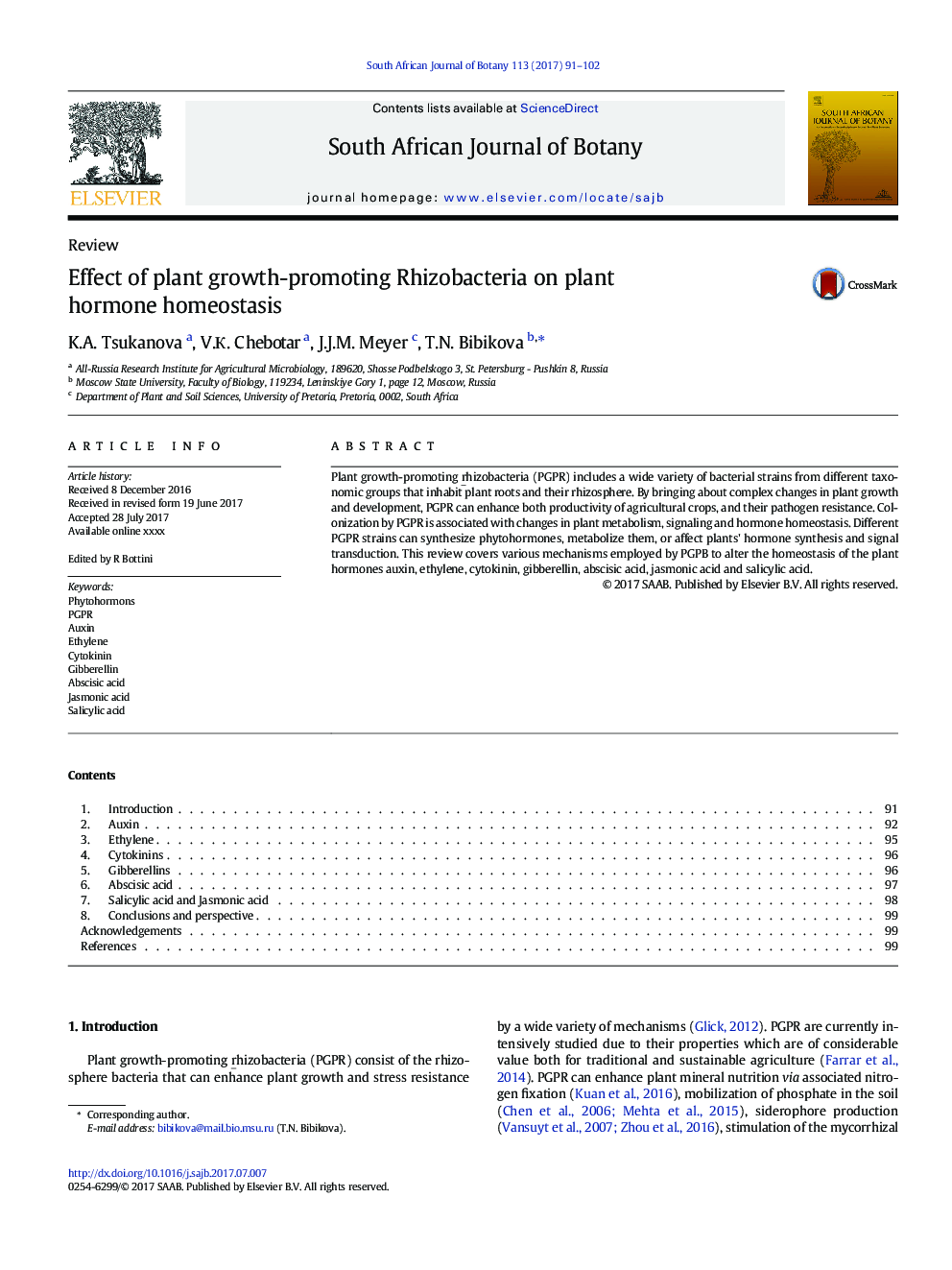| Article ID | Journal | Published Year | Pages | File Type |
|---|---|---|---|---|
| 5762881 | South African Journal of Botany | 2017 | 12 Pages |
Abstract
Plant growth-promoting rhizobacteria (PGPR) includes a wide variety of bacterial strains from different taxonomic groups that inhabit plant roots and their rhizosphere. By bringing about complex changes in plant growth and development, PGPR can enhance both productivity of agricultural crops, and their pathogen resistance. Colonization by PGPR is associated with changes in plant metabolism, signaling and hormone homeostasis. Different PGPR strains can synthesize phytohormones, metabolize them, or affect plants' hormone synthesis and signal transduction. This review covers various mechanisms employed by PGPB to alter the homeostasis of the plant hormones auxin, ethylene, cytokinin, gibberellin, abscisic acid, jasmonic acid and salicylic acid.
Related Topics
Life Sciences
Agricultural and Biological Sciences
Agronomy and Crop Science
Authors
K.A. Tsukanova, V.Ð. Сhеbоtаr, J.J.M. Meyer, T.N. Bibikova,
